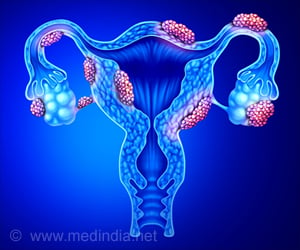A recent report has cautioned that junior doctors’ poor training is resulting in unnecessary emergency Caesarean births in many cases.
A recent report has cautioned that junior doctors’ poor training is resulting in unnecessary emergency Caesarean births in many cases. Senior doctors have reported in this week’s British Medical Journal (BMJ) that expert obstetricians can prevent several emergency Caesareans.
Currently, in the UK, the decision whether to try a vaginal birth, using forceps or a ventouse, or carry out a Caesarean is taken in the delayed second-stage labor by trainees. Experts revealed that there were "substantial differences" in the views of trainees and senior consultants.The experts said: "A consultant obstetrician who performed a vaginal assessment was more likely to reverse a decision made by an obstetric trainee for a Caesarean and proceed to a safely conducted instrumental delivery." They said that although Caesareans were sometimes appropriate, "many could be prevented by the attendance of a more skilled obstetrician".
The facts from the Royal College of Obstetricians and Gynaecologists were mentioned in the study. Lack of labor progression is the reason given for 35% of Caesareans for single pregnancies of which 1/4th will develop labor after complete dilation of the cervix. However, no effort was taken to use forceps or a ventouse for a normal vaginal delivery in 55% of such cases. The rate of failure with instruments was 35% for ventouse and 2% for forceps.
The risk of major haemorrhage, bladder trauma and tearing are some of the risks associated with second-stage Caesareans. A recent Scottish study reveals that women who have had their first child by Caesarean section have less chances of conceiving again than those who gave birth naturally.
The experts said: "Without increases in junior doctors' experience and recruitment into the speciality, the problems with second-stage Caesareans will rise. Furthermore, women who undergo a Caesarean section are less likely to have a vaginal birth in subsequent pregnancies because they tend to request repeat elective Caesarean delivery."
The repeat operations present an elevated risk of low-lying placenta that can lead to bleeding by blocking the birth canal during the labor. According to the experts, an emergency Caesarean section is advised for women with unanticipated breech baby or for the second baby in twins.
Advertisement
Chris Spencer, a consultant obstetrician at St John's Hospital in Chelmsford, Essex; Deirdre Murphy, a professor at Trinity College at the University of Dublin; and Susan Bewley, a consultant obstetrician at Guy's and St Thomas's NHS Foundation Trust in London were the BMJ experts.
Advertisement
Source-Medindia
GYT





